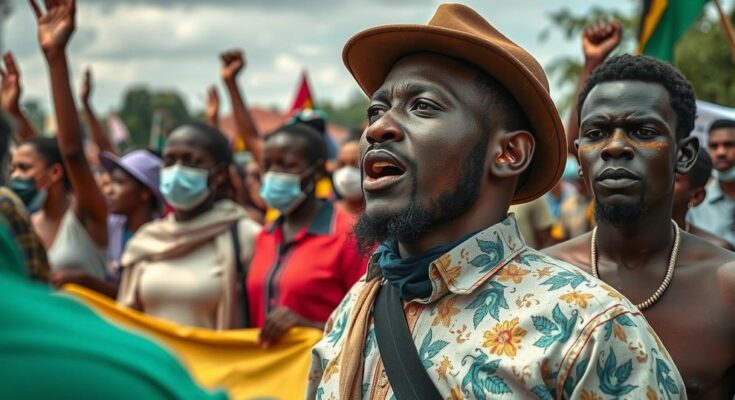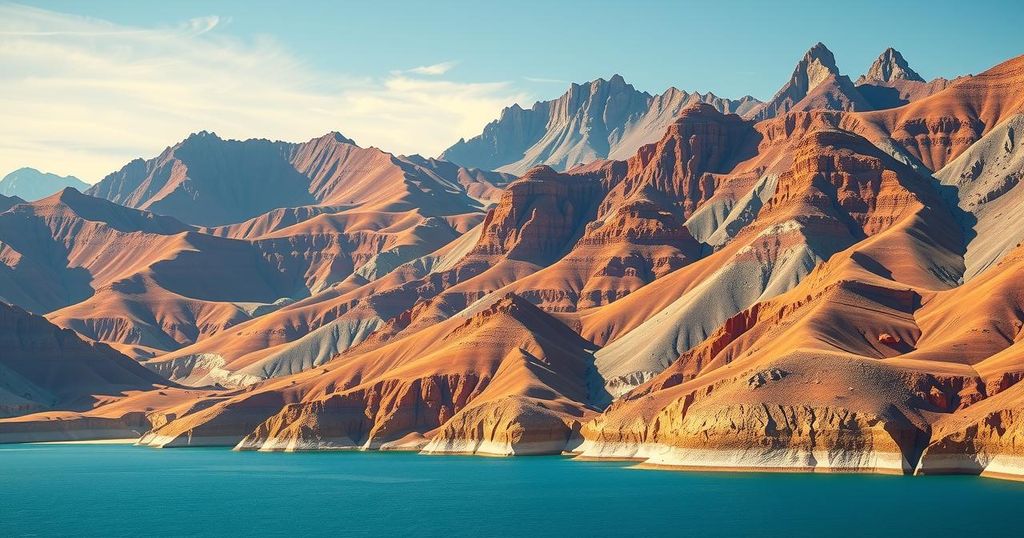Hundreds protested against illegal mining in the DRC’s South Kivu province, prompted by recent arrests of Chinese nationals linked to gold smuggling. Authorities claim many mining operations are unregulated. Local communities demand that mineral wealth benefits them, amid ongoing conflicts and government crackdowns on illegal practices.
On Wednesday, several hundred demonstrators took to the streets in the eastern region of the Democratic Republic of Congo (DRC) to voice their opposition against illegal mining practices. This protest emerged following reports of widespread illicit activities often linked to Chinese mining companies. The governor of South Kivu, Jean-Jacques Purusi, confirmed the recent arrest of three Chinese individuals in possession of gold bars and significant amounts of cash. Local authorities have expressed concerns about the lack of proper permits and profit declarations among numerous mining firms operating in the area.
The demonstrators carried banners proclaiming, “South Kivu minerals should serve the development and well-being of communities,” emphasizing the need for responsible resource management. In response to ongoing violations, the local government had initiated a crackdown on non-compliant mining companies, halting their operations. The province is rich in valuable minerals like gold and diamonds, which are often exploited amidst the severe conflicts that have plagued the region for decades, exacerbated recently by the resurgence of the M23 rebel group.
In late 2022, the DRC government attempted to establish control over mineral exports, particularly gold, by granting exclusivity to the Emirati-Congolese firm Primera Gold. However, the company has struggled to mitigate black market activities due to insufficient liquidity, as highlighted by the Bureau of Scientific and Technical Studies, an organization that specializes in mining governance issues.
The eastern Democratic Republic of Congo is known for its vast mineral wealth, including gold, diamonds, and essential elements utilized in the production of technology such as mobile phones and electric vehicles. Despite the region’s abundant resources, it has been marred by conflict and exploitation, particularly from foreign entities. The issue of illegal mining has gained prominence as local communities have increasingly called for accountability and benefits from their natural resources, especially in light of deteriorating living conditions linked to corruption and external exploitation by mining companies, particularly from China.
The protest against illegal mining in South Kivu highlights the ongoing struggle between local communities seeking to reclaim control over their resources and the pervasive influence of foreign mining companies. The arrest of Chinese nationals raises concerns regarding international involvement in the region’s illicit activities. As the DRC government intensifies its efforts to regulate the mining sector, the effectiveness and sincerity of these initiatives remain to be seen, particularly in curtailing black market operations and ensuring the equitable distribution of mineral wealth to benefit local populations.
Original Source: www.barrons.com




